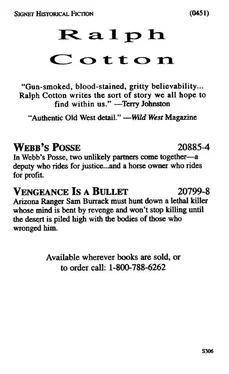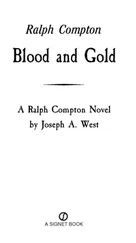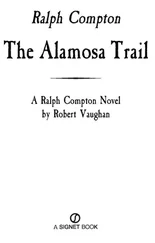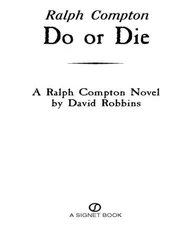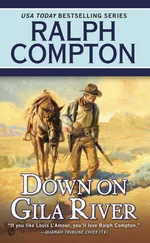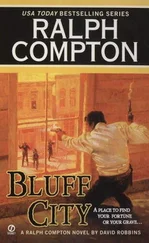Ralph Compton - Doomsday Rider
Здесь есть возможность читать онлайн «Ralph Compton - Doomsday Rider» весь текст электронной книги совершенно бесплатно (целиком полную версию без сокращений). В некоторых случаях можно слушать аудио, скачать через торрент в формате fb2 и присутствует краткое содержание. Год выпуска: 2015, Издательство: Penguin Publishing Group, Жанр: Старинная литература, на английском языке. Описание произведения, (предисловие) а так же отзывы посетителей доступны на портале библиотеки ЛибКат.
- Название:Doomsday Rider
- Автор:
- Издательство:Penguin Publishing Group
- Жанр:
- Год:2015
- ISBN:нет данных
- Рейтинг книги:5 / 5. Голосов: 1
-
Избранное:Добавить в избранное
- Отзывы:
-
Ваша оценка:
- 100
- 1
- 2
- 3
- 4
- 5
Doomsday Rider: краткое содержание, описание и аннотация
Предлагаем к чтению аннотацию, описание, краткое содержание или предисловие (зависит от того, что написал сам автор книги «Doomsday Rider»). Если вы не нашли необходимую информацию о книге — напишите в комментариях, мы постараемся отыскать её.
Doomsday Rider — читать онлайн бесплатно полную книгу (весь текст) целиком
Ниже представлен текст книги, разбитый по страницам. Система сохранения места последней прочитанной страницы, позволяет с удобством читать онлайн бесплатно книгу «Doomsday Rider», без необходимости каждый раз заново искать на чём Вы остановились. Поставьте закладку, и сможете в любой момент перейти на страницу, на которой закончили чтение.
Интервал:
Закладка:
He took the poster from Fletcher hands. “This dodger arrived yesterday and it isn’t common knowledge in town yet. Now, it’s not for me to figure the right or the wrong of these murders. Like I told you, that’s up to a judge.
“But I’ve thought this thing through, rassled with my conscience, you might say, and I’ve decided to let you ride on out of here. I don’t want to see you get shot in the back so somebody can collect this reward, and I don’t want you to dangle at the end of a rope. Let’s just call it professional courtesy, or something I’m doing for old times’ sake. Take it any damn way you want.”
Fletcher felt relief flood over him. “Dan, I appreciate it. The only way I can clear my name is to get the man who set all this up to confess. I know that sounds thin, but it’s a chance and I’ve got to take it.”
Cain rose to his feet. “Buck, you do whatever you have to do. All I know is I owe you a favor from the old days and now I’m repaying it. I’m going to have to square this with the marshal when he gets back, an’ that won’t be easy, but whatever lay between us is now over. There won’t be a second time.”
The lawman walked toward the door, then stopped. “There’s one more thing,” he said, turning to Fletcher. “Like I told you, this dodger isn’t common knowledge, but the word is getting around that it was Buck Fletcher who killed Jack Dunn over to Riley’s last night.”
“What are you telling me, Dan?”
“Only this—Hank Crane is in town.”
“Do you think he knows?”
Cain nodded. “It’s his business to know.”
After Cain left, Estelle said, “Buck, who is this Hank Crane?”
“Bounty hunter, maybe the best there is. He’s good with a gun but usually shoots from ambush and he doesn’t believe in bringing his captives in alive. He says there’s more profit in killing a man—he doesn’t have to feed him.”
“Will he come after us, Buck?”
“Estelle, I think we can bet the farm on it.”
* * *
Fletcher and the girl left the restaurant and walked to the general store near the stockyards. The night was shading into a gray dawn and there were more people in the street, respectable citizens mostly, the shadier element seldom rising before noon.
The day was starting out bitter cold, the wind biting, and the smell of snow was in the air. People walked bundled up in coats and mufflers, their breath smoking, telling each other that surely a blizzard was on the way.
The store, when Fletcher and Estelle walked inside, was warm and welcoming, a potbellied stove in the middle of the floor glowing cherry red.
A burlap bag of green coffee stood by the door and near it a barrel of sorghum, leaking, as they always did, black drops onto the floor. Bright candy canes stood on end in jars along the front counter next to rounds of yellow cheese, some of them cut into thick, vee-shaped slices A barrel of crackers, the lid off, shouldered against a hogshead of sugar, and on its other side a barrel of pungent sauerkraut was surrounded by open boxes of gingersnap cookies.
Slabs of smoked bacon on iron hooks hung from the ceiling, and beneath them were piles of hickory shirting in stripes and plaid and bolts of calico and gingham cloth.
On the back shelves were rows of shoes, coffeepots, bags of gunpowder, canned goods, and boxes of rifle and pistol ammunition.
Fletcher made his purchases—bacon, coffee, salt, flour, and shells for his rifle and Colts—from the rapidly dwindling money he’d been given by Falcon Stark. A generous man by nature, Fletcher was unusually careful with money, knowing it was hard to come by and harder to keep. Somehow, as he counted the coins in his money belt, he was missing twenty dollars that he could not account for and did not recall spending.
In the scheme of things, it was a small loss, and Fletcher shrugged it off, thinking that he must have lost the double eagle, probably at the pueblos.
He had no way of knowing it then, but that missing twenty dollars would play a significant role in what was to come—not for its own sake, but for what it was used to buy.
With a word of thanks and the gift of a free sample of cheese, small enough but nonetheless welcome, the storekeeper sacked up the supplies and Fletcher and Estelle walked back to their hotel.
Thirty minutes later they rode out of Hays, heading south into the Kansas plains.
Twenty-three
Keeping Big Creek to his east, Fletcher planned to ride to the Arkansas River, a distance of about seventy-five miles, and then swing west.
Hickok would be slowed by the wagons, and Fletcher doubted he’d push all the way to the Cimarron before making his own westward turn to reach the migrating herds in the sheltered, shallow canyons near the Colorado border.
If they had any chance of catching up to Falcon Stark, it would have to be west of the Arkansas, in that flat, open country where a man on a tall horse could see for miles.
The gently rolling land around them was covered in buffalo and blue grama grass, and here and there Fletcher and Estelle rode past bright green bushes of tumbleweed with its purple-and-red-striped leaves. Come summer, sunflowers would bloom on these plains, and colorful masses of columbines, daisies, goldenrod, and wild morning glory would stretch to the horizon.
But now, in the depths of winter, the landscape was bleak, the grass scorched by snow and frost to a dull brown, and willows and leafless cottonwoods clung to the banks of the partially frozen creeks. The cold was icy and penetrating, the kind of cold that made a man huddle into his mackinaw and think the fires of hell would be a welcome relief.
To the southwest lay the 2,400-foot peak of Round House Rock, and just ahead was the south fork of the Smoky Hill River, a barrier Fletcher and Estelle would soon have to cross.
When they were an hour out of Hays, Fletcher picked up the wheel ruts of heavily loaded wagons heading due south toward the Arkansas.
“I’d say that’s our buffalo hunters,” he told Estelle. “The ground was still fairly soft when they rolled across here and they’ve left a pretty obvious trail. I’d say they’re maybe three days ahead of us.”
The trail led to the Smoky, then swung east toward its junction with the north fork.
Fletcher dismounted and studied the tracks. Hickok had been looking for a place to cross, either a shallow ford or a ferry, of which there were several scattered up and down both banks of the river.
He stepped into the saddle and again followed the wheel ruts. The Smoky had not yet frozen, though patches of ice clung to the rocks along its banks and there was a thick hoarfrost on the trunks and branches of the cotton woods.
It was getting colder, and Estelle shivered and pulled her mackinaw closer around her, only her eyes showing above the sheepskin collar.
“As soon as we’re across the river, we can stop and boil some coffee,” Fletcher told the girl, trying to bolster her sagging spirits. “Heat you up some.”
Estelle lowered the collar of her coat and gave Fletcher a grateful smile, immediately covering her mouth again.
Fletcher noticed scattered buffalo tracks along the bank, and he recalled hearing that in the summer drought of 1868 a vast herd of a million animals, stretching thirty-five miles from point to drag, had drunk this river dry.
The wagon ruts led through a shallow valley between two saddleback hills, then, as the valley opened out, headed back to the river again. Ahead Fletcher saw a small shack, an iron pipe belching black smoke sticking out of its roof, and a ferry tied up to a ramshackle wood dock.
He and Estelle rode to the shack, and Fletcher yelled, “Ho, the house!”
After a few moments a man stepped outside. He was big and burly, dressed in greasy buckskins decorated with ornate beadwork, and a matted red beard spread thick to his belt buckle. A young Indian woman hung shyly in the background, her braids plaited in the northern Cheyenne style with blue trade ribbon, her face revealing bruises from blows old and recent.
Читать дальшеИнтервал:
Закладка:
Похожие книги на «Doomsday Rider»
Представляем Вашему вниманию похожие книги на «Doomsday Rider» списком для выбора. Мы отобрали схожую по названию и смыслу литературу в надежде предоставить читателям больше вариантов отыскать новые, интересные, ещё непрочитанные произведения.
Обсуждение, отзывы о книге «Doomsday Rider» и просто собственные мнения читателей. Оставьте ваши комментарии, напишите, что Вы думаете о произведении, его смысле или главных героях. Укажите что конкретно понравилось, а что нет, и почему Вы так считаете.
